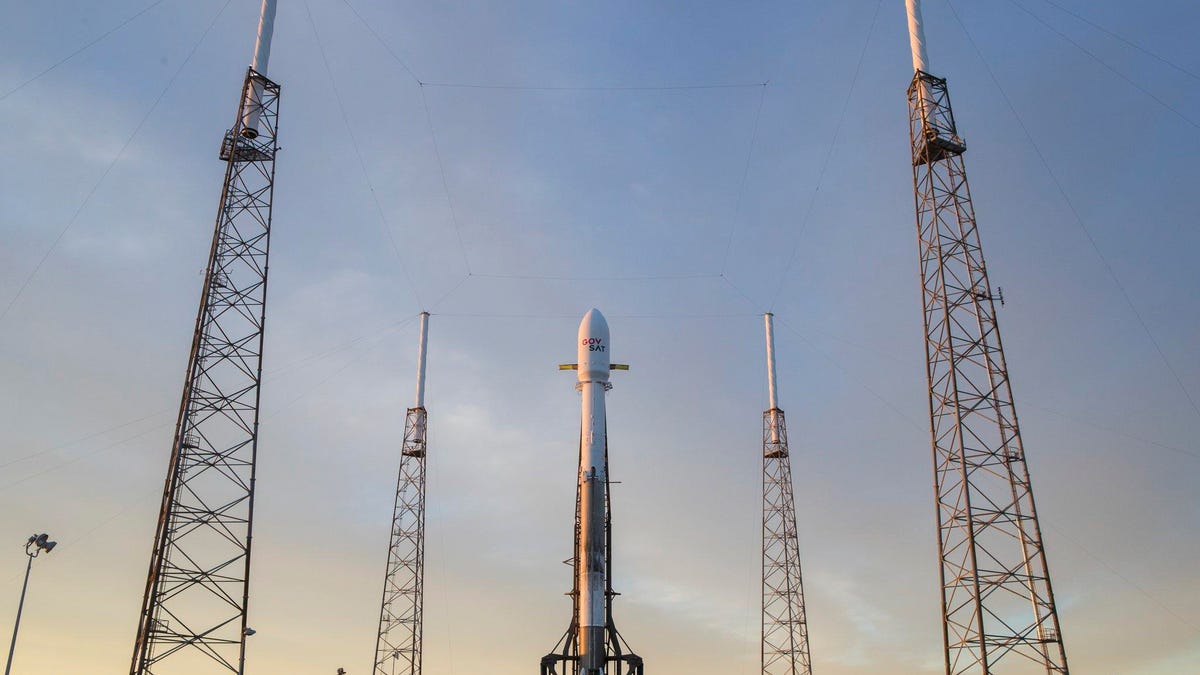SpaceX denies report of Air Force blowing up its floating Falcon 9
Elon Musk had hoped to tow one of his rockets home after it managed to survive an experimental landing in the Atlantic Ocean, then weird reports surfaced about its fate.
Shortly after the celebration over SpaceX's Falcon Heavy debut began to die down, a few odd reports started to circulate that one of the company's Falcon 9 boosters used in an earlier launch had been bombed by the US Air Force.
SpaceX has since told me that these reports are "categorically false."
On January 31, SpaceX used an older model Falcon 9 rocket to launch a satellite named GovSat-1. There were no plans to recover the rocket, but it was used to test a landing technique on water without a droneship. Surprisingly, the rocket appeared to survive the watery experimental landing and was spotted floating on the surface of the Atlantic Ocean.
SpaceX CEO Elon Musk tweeted that the company would try to tow the resilient rocket back to shore. Shortly thereafter, attention shifted to the Falcon Heavy spectacle and little more was heard about the small rocket that could.
This rocket was meant to test very high retrothrust landing in water so it didn’t hurt the droneship, but amazingly it has survived. We will try to tow it back to shore. pic.twitter.com/hipmgdnq16
— Elon Musk (@elonmusk) January 31, 2018
That is until reports began to surface that the Falcon 9 from the GovSat-1 mission had been "scuttled" by the Air Force, or basically bombed to the bottom of the ocean.
So the #Falcon9 1st stage for #GovSat1 that soft landed in the ocean and survived... @NASASpaceflight has confirmed that the Air Force conducted a scuttling operation to destroy it as there was no safe way to get it back to Port. (Photo credit: #SpaceX) pic.twitter.com/T1l4YhnyWL
— Chris G - NSF (@ChrisG_NSF) February 8, 2018
I contacted the 45th Space Wing at Patrick Air Force Base in Florida, which manages Cape Canaveral Air Force Station where SpaceX often lands its Falcon 9 rockets, but did not hear back.
I did hear back from SpaceX though, where communications director John Taylor relayed the following via email:
"While the Falcon 9 first stage for the GovSat-1 mission was expendable, it initially survived splashdown in the Atlantic Ocean. However, the stage broke apart before we could complete an unplanned recovery effort for this mission. Reports that the Air Force was involved in SpaceX's recovery efforts are categorically false."
So it appears the military is not taking target practice with floating metal tubes filled with rocket fuel. Still, it seems we have discovered yet another potential reason why recycling rockets is a good thing.
Two Falcon 9 boosters land following the first Falcon Heavy launch.
Crowd Control: A crowdsourced science fiction novel written by CNET readers.
Solving for XX: The tech industry seeks to overcome outdated ideas about "women in tech."


